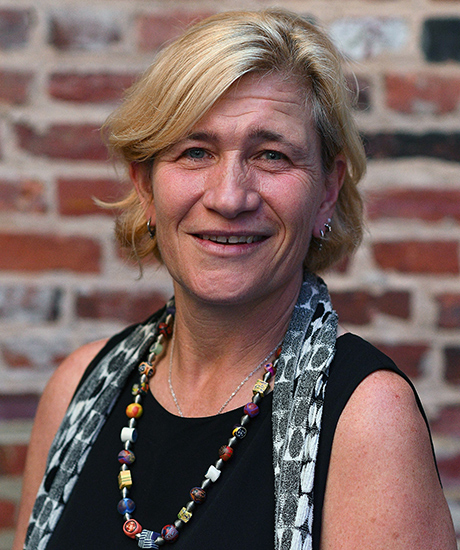
csba at issue
by Jill Vialet
California elementary schools transform through the power of play
ith just nine days left of school, David T. Hoffman, principal of the New River Elementary School in Norwalk, Calif., did not want to jinx himself, but he was quite pleased to note that there had not been any suspensions this year among the 400 K-5 students in the school.
“Disciplinary issues have gone down significantly,” Hoffman said proudly. ”There’s been a noticeable difference of kids coming into my office after recess because of incidents on the playground.”
What he observes at recess is that students are respectfully playing games with one another. “They get along better. Their ability to handle issues on their level has greatly increased. You can see it tangibly on the playground,” said Hoffman. As a seasoned educator at this school and others, Hoffman has seen that the playground can be a stage for conflict. At New River Elementary School, which serves a diverse student population, students are practicing high level social-emotional learning skills that translate into more harmony inside the classrooms and readiness to learn.
Our country’s elementary education system is changing, little by little, to adapt to meeting our youngest students’ needs more effectively. There is a new push for social-emotional learning in grades K-5 nationwide. And while there is still much debate on what defines social-emotional learning and how best to measure it, the California Department of Education has been leading the nation in wrestling with these issues, equipping educators with training, resources and tools to help students develop important learning and life skills.

“They get along better. Their ability to handle issues on their level has greatly increased. You can see it tangibly on the playground.”
—David T. Hoffman, principal,
New River Elementary School
Evidence-based approaches to delivering social-emotional learning to schools throughout California are working. These program help students develop the skills of leadership, conflict resolution and collaboration — all of which are tied to critical outcomes such as improving school climate and safety, and are essential to interpersonal relationship-building and workforce readiness. Hoffman notes that an organized play program has been at New River Elementary long before he came, and the program and its coaches deserve credit for the graceful negotiating skills that the students are learning every day.
New River Elementary uses the Playworks program, which partners with elementary schools, districts and after-school programs to integrate games and social-emotional skill building activities into recess to create a welcoming place for every child on the playground. The school has 12 students who serve as junior coaches, and Hoffman said they are taking on leadership roles on the playground and negotiating conflict adeptly. “These are valuable lifelong lessons that they are learning,” he said. “And, they are the right lessons to be learning early.”
When students come in from the playground, Hoffman said they are ready to learn. “Exercise is key,” he said. “Physical activity helps learners learn. It’s been proven over and over.” And, he said it helps foster instructional time too. “Teachers can get right into teaching rather than having to take more time out to solve problems.” Research supports these views. Findings from a randomized control trial conducted by Mathematica Policy Research found that organized play programs lead to an increase in valuable learning time, making the transition from playing to learning time in the classroom faster each day.
Organized play programs integrate games and social-emotional skill building activities into recess to create a welcoming place for every child on the playground. Many schools that use Positive Behavior Interventions and Supports frameworks have attributed dramatic decreases in disciplinary referrals to such programs. “For many of our at-risk students, this program has made a positive difference in their attitude and behavior,” Hoffman said.
Organized play programs such as Playworks use on-site coaches, professional development, consultations and free resources to improve playtime. The programs focus on having fun and providing a safe and positive environment. For example, students can learn simple problem-solving techniques such as using “rock, paper, scissors” to resolve problems and keep a game going. Adult supervisors or student leaders can set an inclusive tone by inviting all children to play, creating randomized ways to pick teams, such as by birth months, to avoid less popular or less skilled students feeling left out. Another important aspect of organized play is to make sure it is not too organized — students should have real choices about what to play, and feel empowered to play on their own or start activities with other students.
“Organized play has definitely brought a whole new dimension to our educational programming in the Norwalk La Mirada Unified School District,” said Kristine Cvar, director of elementary education for the district. “The student outcomes provided enough evidence for our district to continue growing Playworks implementation in 17 of our schools. We’ve seen about a 90 percent decrease in student suspensions, an increase in student leadership at every site, as well as an increase in student academic success. It’s amazing to see how our students are thriving on the strong social-emotional learning foundation that this organized play program has provided to our schools across the board.”
About the author: Jill Vialet is the Founder and CEO of Playworks, the leading national nonprofit leveraging the power of play to transform children’s social and emotional health. A recent review conducted by the RAND Corporation and commissioned by The Wallace Foundation found that Playworks offers one of the few social and emotional learning interventions for elementary schools that meet the highest criteria for evidence of impact under the Every Student Succeeds Act. This is the first comprehensive review to examine which social and emotional learning interventions qualify for federal funding under ESSA. For more information, visit: www.playworks.org.